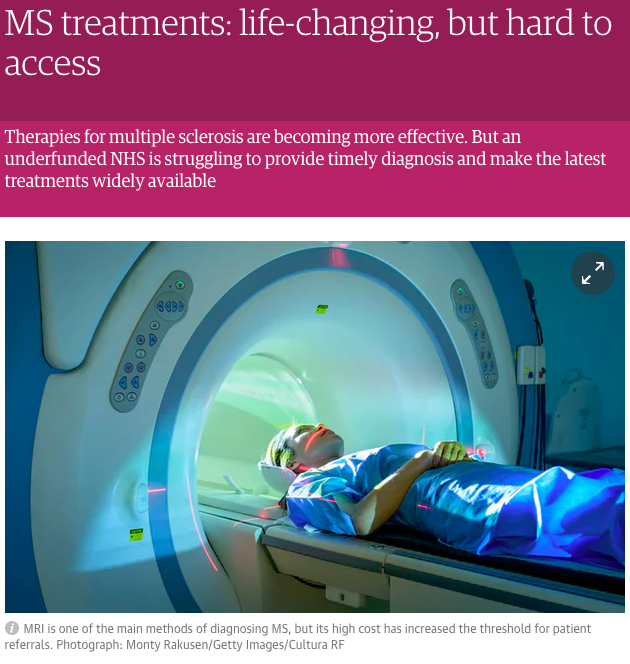More than 100,000 people in the UK have multiple sclerosis (MS), the most common cause of serious physical disability in working age adults, according to the MS guidelines set out by the National Institute for Health and Care Excellence.
My write up in the Guardian today looks at the condition, which is regarded as relatively rare. Public awareness of MS is low, but recent innovations in treating and assessing MS are creating a fresh focus on the disease.
Research suggests, for example, that MRI scans – already used in diagnosis – may be useful in predicting how MS will progress. In addition, a new drug therapy just approved in the US offers help for symptoms in the most chronic form of the condition. But, given that the drug has yet to be licensed in Europe, can the UK keep up with the latest innovations in the treatment of MS?
This was the backdrop to a recent roundtable discussion, supported by biotech company Sanofi Genzyme. Are the tools for assessing MS fit for purpose? How can early diagnosis and treatment be sped up? What matters to patients?
You can read the views of MS specialists, health experts, campaigners and people with MS on these issues in the full piece here.

